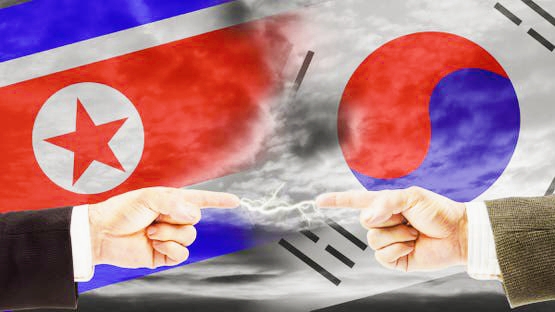North Korea launched a scathing attack on South Korean President Yoon Suk-yeol, calling him a "hypocrite," following his recent statements regarding nuclear disarmament on the Korean Peninsula, which he made during his official visit to the U.S. capital, Washington.
During his meeting with U.S. President Donald Trump at the White House on Monday, Yoon stated that the alliance between Seoul and Washington would be strengthened when there is a real path toward nuclear disarmament and achieving peace and coexistence on the Korean Peninsula, emphasizing the need to reach a lasting peaceful solution in a region that has officially been in a state of war for more than seven decades.
Yoon, who took office last June, has expressed on several occasions his desire to improve relations with Pyongyang, despite its advanced nuclear arsenal.
However, his statements in Washington provoked anger from North Korea, which responded through its official news agency by describing him as "obsessed with confrontation and a hypocrite," considering that his words contradict his previous calls for dialogue.
The North Korean agency added that Yoon's talk about nuclear disarmament "is nothing but a naive dream, like someone trying to catch a cloud in the sky," reaffirming that Pyongyang will not give up its nuclear weapons, especially after the failure of the 2019 summit between North Korean leader Kim Jong Un and then U.S. President Donald Trump, which did not lead to any agreement.
In this context, the South Korean president took advantage of his visit to Washington to sign 11 memorandums of understanding with the United States, aimed at enhancing industrial cooperation and in the aviation sector, reflecting Seoul's efforts to strengthen its economic and military partnership with Washington amid increasing regional tensions.
For his part, Trump expressed during his meeting with Yoon his hope for a new meeting with Kim Jong Un, possibly later this year, confirming that he still maintains good personal relations with the North Korean leader, despite the diplomatic stalemate that has prevailed since the end of his first term.

